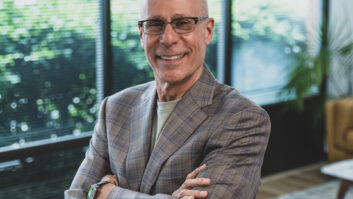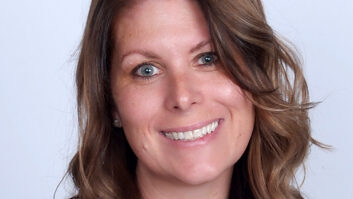The speed and the scale of the financial collapse that has hit the world markets in recent weeks has been so immense that even governments have found it difficult to take the full implications on board. A succession of central measures designed to correct the problems have rallied the markets – only to be dismissed as ‘too little too late’ a day or so later.
On 15 October, French president Nicolas Sarkozy opened a European Union summit aimed at easing the financial crisis. The rescue plan proposed by Sarkozy looks set to pump £1.32trillion (1.7trillion euro) into the banking system.
A few days earlier, Britain announced its own £37billion rescue plan for its banks, with the country’s prime minister, Gordon Brown, persuading leaders across Europe and the US to follow suit. France and Germany agreed to pledge £642billion to the future of their country’s banking systems. “Nothing will be spared to prevent the crisis getting any worse,” pledged Sarkozy.
Despite the enormity of that commitment, it took the markets just 48 hours to shake off its euphoria and swing back to a dangerously black mood, wiping vast amounts off the value of shares. At press time, it was still unclear whether the EU had a unified plan.
It’s not hard to work out where the money has gone: in the US, banks and mortgage companies were for years lending at a reckless rate to people who had no realistic chance of repaying. Sooner or later, the system had to collapse and when it did, banks across the world had to face the fact that they were sitting on an unsustainable pile of ‘toxic debt’.
What is perhaps harder to understand is how anyone could be such a fool, least of all highly rewarded professionals paid to produce profit. But pursuit of profit ‘at any cost’ and inflated rewards are the nub of the problem, of course.
As the many government bodies and businesses that thought their money would work harder in Icelandic banks have discovered to their cost, high profits inevitably translate into high risks. Whether all investors will see their money again, no one really knows – by some accounts, the entire country of Iceland is now, in effect, bankrupt, with debts 12 times gross domestic product.
UK experience
All of this has a huge personal cost, and the UK population is taking a bigger hit than most. Because it has higher levels of home ownership than the rest of Europe, more people in the UK feel the effect of rising mortgage rates. And, as a densely populated island, it has seen its housing stock become dangerously over-valued in recent years, especially in the more prosperous south-east.
Couple this with rising levels of unemployment and you have a growing number of people who can no longer afford the repayments on properties that are now worth less than the original purchase price – ‘negative equity’.
This, in turn, creates an outbreak of defaults, as homeowners walk away from properties they can neither sell nor afford to keep. Mortgage companies and banks have already accelerated repossessions, giving them large property portfolios they desperately need to covert to cash.
As IE went to press, the UK government confirmed what many already suspected – the country is in recession for the first time since 1992, with the economy shrinking by 0.2% in all three months up to September. Meanwhile, it has been estimated that rescuing the UK’s banks will cost every taxpayer in the country £16,000.
Not all doom and gloom
One might expect UK companies to be more pessimistic than their counterparts in mainland Europe, but this isn’t necessarily the case. Where there are certainly signs of installers and integrators in the UK adapting to changing conditions, it’s hard to find anyone talking the market down.
“It’s very easy for companies to blame the credit crunch on their failing strategy, to say that’s why were not selling,” says Roland Dreesden, managing director of UK-based integrator Reflex. “There has to be a real understanding of whether your business model is right – and not just think it’s the credit crunch that’s making it go wrong.”
In Dreesden’s analysis there are three options: “You do nothing, you cut back, or you really go for it.” It’s the later option that Reflex has chosen, taking on more staff, restructuring the company’s sales side into units that mirror the sectors it is serving and increasing the level of skills within the organisation.
“It’s going to be harder, more challenging,” Dreesden concedes, but he says the strategy is wholly realistic. “If you look at Reflex, we’re not a great big blue chip with 3,000 people. We’re a £9million company with 45 people. We probably have less than 5% of the corporate market, so to try and get an extra 1% shouldn’t be that difficult, you’ve just got to refocus your activity.”
Reflex began restructuring around two years ago, when it realised that it was massively over-reliant on business from the Ministry of Defence. The company still counts the public sector as an important source of work but these days, it is far more diversified, encompassing universities, the emergency services and central government. Importantly, Reflex has been equally deliberate in the way it profiles the private sector.
“We obviously have the corporate world and even it’s broken down into different sectors,” Dreesden explains. “We’re not just in financial institutions, we’re also in manufacturing and pharmaceuticals, we’re in the legal profession…”
Although he makes a convincing case for the strategies Reflex is pursuing, Dreesden cautions that it is not an instant fix. “It absolutely isn’t an overnight thing; you can’t expect that tomorrow you will reap the rewards. We’re evolving.”
Edward Cook is chief executive of AV Machines, a UK-based integrator with a strong base in the heart of the country’s corporate sector, the City of London. The company clearly works to very high standards and the home page of its website contains two compelling statistics: 95% of customers say they would use the company again and 98% say they would recommend AVM to others.
Cook says that the current economic climate is definitely affecting business. “We are expecting business to slow down quite considerably from the corporate side and are preparing accordingly.”
By this, Cook is not talking about redundancies, but he says “we are keeping an eye on our costs. We are not doing anything extravagant and we are refocusing our attentions to non-corporate clients, such as the education client base and the government sector.”
“In our experience they are much less affected,” says Cook of public services during economic downturns. “Their budgets tend to get agreed years in advance, so they are not prone to such short-termism – and generally, we are broadening our reach so that we have less exposure to any one sector.”
Stability and exposure
It is a perspective echoed by Jos den Hartog, new business manager at Hecla Professional Audio & Video systems in the Netherlands. The company has been in hire, sales and installation since 1969.
“We have a vertical market approach,” says den Hartog, “so we try to spread our risk. We have a good base in the institutional markets, then in government and the regions. We are in government markets such as police and fire departments, education, and then we’re very good in financials and transportation, airports and all of that.
In den Hartog’s experience, the two sectors tend to balance each other out, with public services making up any shortfall in the private sector. “If the market goes down, governments will spend more, and when the market goes well, governments spends less,” he points out. “We are not afraid, let’s put it that way.”
Den Hartog also notes that the Netherlands is not suffering from the same economic turmoil as the UK, or even France and Germany. He says: “The Dutch banks are very reliable… the Dutch financial position is very solid, it has been solid for hundreds of years,” pointing to a system of public finance that is one of the best in the world.
There is more to den Hartog’s perspective than national pride. As the British historian Niall Ferguson notes in his book Empire: “In 1694 the Bank of England was founded to manage the government’s borrowings as well as the national currency… London was also able to import the Dutch system of a national public debt, funded through a stock exchange, where long-term bonds could easily be bought and sold.”
Ironically, in deposing England’s James II in 1688, the Dutch Stadholder William of Orange sowed the seeds for Britain to forge the largest empire the world had even known.
Of Hecla’s business, den Hartog adds: “It is very good this year, but obviously we will take into account the world situation as well. We think that some markets will definitely be less next year, especially the banks themselves.”
It didn’t take long for den Hartog’s prediction to come dramatically true. Two days later, the Dutch government announced that it would inject £7.71billion into ING Group after the financial services company became the latest victim of the global financial crisis.
It turned out that, on the same day that IE spoke to den Hartog, ING’s shares dropped more than 27%. This was the market’s reaction when the company said it expected to post a third-quarter loss of £386million as a result of £1.23billion in write-downs. No one, it seems, is immune.
There is arguably only one country that has a financial system with a better reputation for stability than the Netherlands: Switzerland. Flavio Rüdy works for sales, hire and installation company Zap Audio, where he handles German-language sales.
“We don’t feel that at the moment,” he says of the chill winds blowing through Europe, “but of course on the consumer side there’s some rumours, some negative thinking, around. I think it’s going to come a little bit delayed – in about six months. But I don’t think it will be a big thing.
“A lot of this hysteria is coming from people’s minds, you know? If they are scared, if they are going to take back the money or change their bank, this can cause the real problems. It’s the fear in the heads of the people. It’s my point of view that it will not heavily affect our business – at the moment we don’t feel any problems or budgets being held back.”
However, one factor that has received very little media attention to date is the size of the banks in trouble relative to the size of the economies of the countries where they are based. Once you take this into account, Switzerland ceases to look such a haven of stability.
According to the Financial Times newspaper, beleaguered US company Fannie Mae had assets equivalent to less than 7% of the country’s GDP when the government had to, in effect, nationalise it. At the other end of the scale, Iceland’s Kaupthing had assets equivalent to 623% of GDP and Landsbanki 374% of GDP – which goes a long way to explaining the Icelandic government’s desperate attempts to limit the extent to which it would underwrite the losses.
Iceland appears to be on the verge of announcing a £3.5billion rescue package, led by the International Monetary Fund and backed by a number of other central banks, to help stabilise its economy.
So what’s this got to do with Switzerland? The asset value of UBS is around 484% of Swiss GDP, while Credit Suisse is more like 290% – meaning that attempting to bail out the two could prove almost as difficult a task for the Swiss government as it has been for Iceland to stabilise its economy.
Public sector and service
Even assuming there are no more shocks to the system, the fallout could last a long time. On the upside, however, the relatively slow sales cycle in the public sector should help to insulate suppliers, at least for the time being.
“We are realising at the moment some very, very nice projects,” says Zap Audio’s Rüdy. “But one was started two years ago and the other three years ago. Some are from the government and were first discussed half a year or more ago.”
For Hecla, den Hartog observes: “New business is very important in the AV market – to be there at the right time and to have the next market ready when you move on.” Of the corporate clients in the financial sector, he says: “We expect that they will probably spend less next year. The boardroom will be less exclusive, but we’re not dependent on one market.”
The broader question is whether governments have done enough to make economic recovery possible. AV Machines’ Cook says he believes “the government has put the right measures in place already” in the UK. “I’m encouraged that the oil price is coming down because I think it is one of the fundamental causes of the doom and gloom that is pervading. My view is the right steps have been taken now but that we will see a fairly long and sustained economic downturn and we’re preparing accordingly.
“I think that everybody is going to be quite a lot more cautious and nervous for a period of time, which means that people won’t be embarking on extravagant projects. They will be very much conserving cash, sitting tight and waiting to ride out the storm.”
Cook also believes that any downturn in capital investment will coincide with an increase in demand for existing equipment to be maintained. “The whole maintenance and service side is a big part of our business,” he reveals. “That’s an area where we will be upping our resources, to be able to take advantage of that.”
It is a sentiment echoed by Reflex’s Dreesden. “We recognise the fact that not everyone is going to be able to buy new equipment, so the existing equipment has to be up and running. At the end of the day, banks have still got to be able to trade. They’ve still got to sell their services.”
Dreesden also advocates taking a long-term view of customers. “People are always around customers when they’ve got budget,” he observes. “They’re always their best friend at that time. When customers face challenging times, very often organisations forget those customers, until they get budget again. That’s not good relationship management. I believe that when you’re in these troubled times, this is when you really show your worth. You work with these guys.
“Of course, you’re taking a risk because you could be investing your time somewhere else. But likewise, you’ve got to get a balance for investing in those people for when the times come good again. And guess what? When the times come good, they remember you.”






